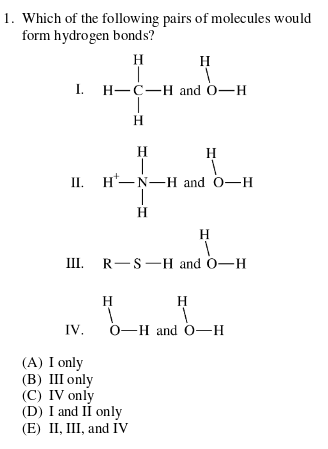I'm doing the GRE Biology practice test, and question #1 asks:
The answer is E. I understand why II and IV are polar, but why is $\ce{R-S-H}$ polar? R is a side chain to the sulfur, sulfur's valence shell is full, and sulfur is highly electronegative. But without knowing what $\ce{R}$ is, how do we know the molecule's total polarity?

